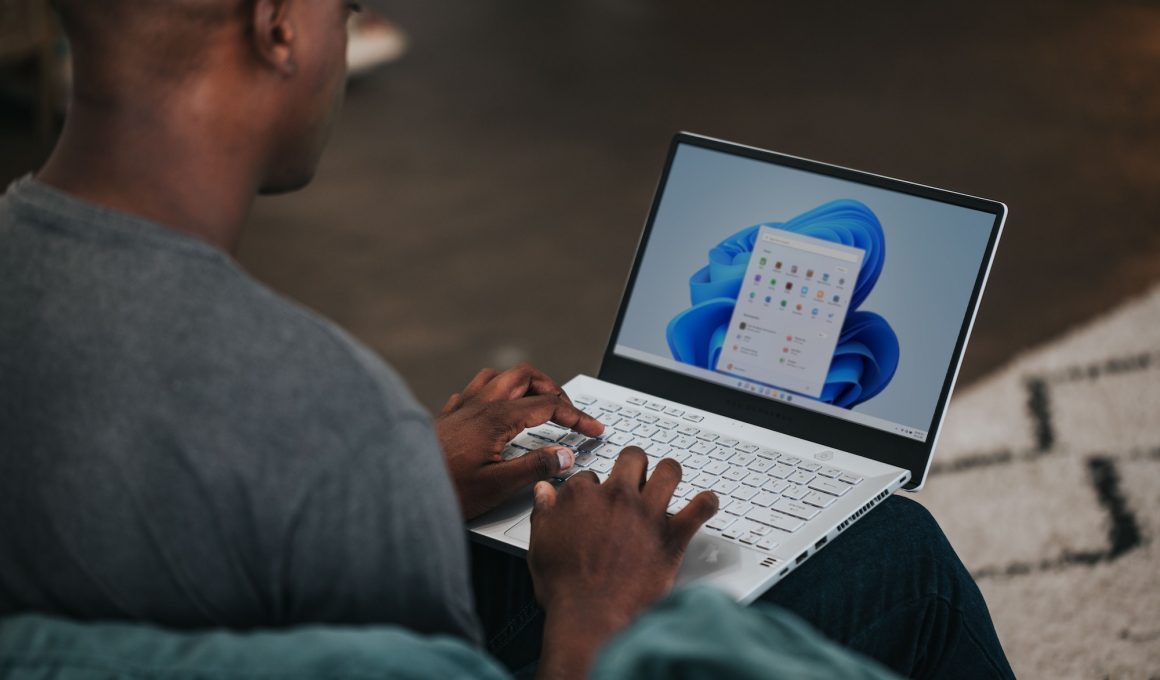It is crucial to have an operating system that safeguards your system and all the information it contains from the moment it starts up, providing chip-to-chip cloud security. Windows 11 is designed to be the most secure Windows yet with its extensive security measures to keep you and your data safe. With the release of a new version of the operating system, there are plenty of new features and capabilities. Some of the features include in-built advanced encryption and data protection, vigorous network and system security, and a smart safeguard against cyber threats that never seem to stop. With Windows 11, you can protect your identity, your data, and your system with built-in hardware protection and OS security right from the box. The features and capabilities in Windows 11 regarding the operating system are mentioned down below.
1. Secure Boot and Trusted Boot
To protect an operating system, the first step is to make sure it boots securely after the first hardware and firmware boot sequences have been completed safely. Windows 11 devices that are starting up with Secure Boot or Trusted Boot do not load malware or any such corrupted components. Secure boot creates a trusted and safe path from the UEFI (Unified Extensible Film ware Interface) to Windows Kernel through the Windows Kernel’s Trusted Boot sequence. To prevent firmware rootkits, the PC first verifies that the firmware has been digitally signed. It then makes sure that all the codes that run before the operating system have been checked and secured and haven’t been tampered with. Any tampering or malware attacks are therefore blocked. The secure boot and trusted boot, together, ensure that the window system boots up safely and with full security.
2. Cryptography and management of certificates
Cryptography is the conversion of data with the help of using codes so that only specific recipients have access to it by using a key. A cryptographic protocol enforces privacy so that no one except the intended recipient can read the data, integrity so that data cannot be tampered with, and authentication so that communications are secure. In windows, cryptography is Federal Information Processing Standards (FIPS) which ensures usage of algorithms that are approved by the US government. It also makes sure that no tampering has occurred which may disrupt the module integrity.
Windows also offer various APIs to operate and manage certificates. Certificates are electronic documents that are used to obtain ownership of a public key. Public keys are used to identify servers and clients, validate code integrity, and send secure emails. These certificates provide a crucial means for safeguarding data and information. Furthermore, windows also provide enterprise certificate pinning, which allows users to protect internal domain names from being attached to unwanted certificates.
3. The windows security app
You can view the security status and health of your device using the Windows built-in security application found in settings. Any virus or threat can be monitored easily and these insights facilitate the identification of issues and make sure that the data is well protected.
4. Protection of data and Encryption
The information on a person’s PC travels with them when they travel. In all cases, confidential data should be protected against unauthorized access, whether through physical theft or malicious applications. BitLocker, is one such operating system component for data protection that reduces the threat of data theft or exposure when computers are lost or stolen. BitLocker is most effective when used with a Trusted Platform Module (TPM). A TPM provides hardware-based protection rather than software-only protection. A TPM provides practical security and privacy benefits along with Window’s security features. Any device with a TPM can become a hardware wallet.
In today’s digital world, cryptocurrency has gained a lot of attention where a currency is managed and created through the use of various encryption techniques and their protection is of utmost importance. The ByBit app is one such app that guides you throughout the process of trading bit usdt.
5. Antivirus and Antimalware Protection
The moment Windows starts, Microsoft Defender Antivirus keeps an eye on viruses, malware, and security threats. Your device is updated automatically to help protect it from threats. Microsoft Defender Antivirus repeatedly scans the device to detect and also block any virus, threat, malware or unwanted application that can cause harm to your device. By integrating with cloud-delivered antivirus protection, Microsoft Defender Antivirus is able to quickly detect and eliminate new threats.
6. Attack surface reduction rules
Cyber-attacks can be carried out on several attack surfaces. These are the places and methods through which you are vulnerable to cyber-attacks. Microsoft Windows and Windows Server have built-in rules to reduce the attack surface of your device and network to avoid and eliminate certain behaviors that can be exploited to compromise the device or network. A typical example is launching scripts or executables which attempt to download or open other files, running suspicious scripts, or engaging in other behaviors that apps typically do not participate in.
7. Anti-tampering protection
With Window’s tampering protection, activities such as damaging the real-time protection, making virus and threat protection powerless, switching off behavior monitoring and removing security intelligence updates can be prevented. Security features are disabled by bad actors so that they can gain access to the user’s data, install malware, and otherwise exploit the user’s data, identities, and devices without fear of being blocked. Tamper protection helps to avoid these can of malicious activities.
8. Network protection
Using Windows’s network protection, users are prevented from accessing dangerous IP addresses or domains on the Internet that can host phishing scams, exploits, and other malicious content. As part of the attack surface reduction process, network protection adds another layer of security to a user’s computer.
Microsoft Windows 11 is the version that you should opt for if you want the latest and greatest version of Windows. Updating to Windows 11 might give you one of the most secure versions of Windows yet.










